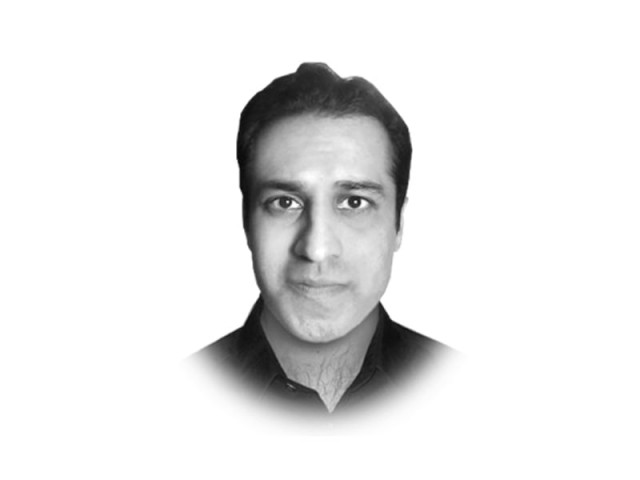Zero cheers for Egypt’s mobocracy
Political consent is best represented through the ballot box. Egypt cannot be ruled by “referenda” in Tahrir.

The writer is an adjunct scholar at the Middle East Institute in Washington, DC and president of Vizier Consulting, LLC. He tweets at @arifcrafiq.
But this month, Tahrir helped bring Morsi down. In a coup. By the military. Yes, the very military that had ruled Egypt for almost 60 years. Some revolution! Egypt’s Constitution has been suspended and its military and allies in the courts and bureaucracy remain ever-so-powerful. The runners-up in the last presidential elections was Ahmed Shafik — the last prime minister appointed by Mubarak.
Morsi was a civilian, possibly a democrat, and certainly no liberal. The core of the anti-Morsi Tamarod movement consisted of Cairenes of a more liberal disposition, many of whom prefer a liberal autocrat to an illiberal democrat. For some, their disdain of politics stems in part because they fear the tyranny of the majority. Many are religious minorities and, quite naturally, were discomfited by an Islamist party that had pushed forward a new Constitution through a majoritarian process.
But also among those who brought Morsi down were idealists. Dangerous idealists. Young, educated, middle-class Egyptians who want to tackle corruption and injustice, who speak of the masses and revolution, but have failed both at evolving a political language beyond an antiquated Nasserite socialism and developing organisations that can win at the polls. Egypt has seen many such movements in the past decade. There was Kefayah, which challenged Mubarak in 2005, and the April 6 youth movement, which helped force Mubarak’s resignation in 2011.
Egypt’s great problem is that the results at Tahrir and the unmolested ballot box won’t align — and neither the Islamists, who can win elections, nor their opposition have produced a set of political norms that can produce the compromise necessary for stability. It faces the tyranny of the majority at the polls and the tyranny of an unelected mob at Tahrir. To move forward, Egypt needs its poll winners to be more consociational and its poll losers to be more self-critical and invest its energy in developing political machines.
There is space for public protest in a democratic system. But Egyptian civil society must understand its own limits. Political consent is best represented through the ballot box. Egypt cannot be ruled by “referenda” in Tahrir. Moreover, the collectivist rhetoric of the Tahrir protestors belies the deep divides in Egyptian society; they speak for a majority they do not represent. But populism can intoxicate those whose mouths it is spewed from.
Egypt needs to build legitimate, democratic public institutions. But revolutions don’t built systems; they tear them down. And despite having been branded as such, what we see in Egypt is not a revolution, but a political opening that could easily be reversed. The ancien regime has not been done away with. The military still calls the shots and operates its own business empire. The bureaucracy and courts are still in bed with it. Meanwhile, the economy is in a free fall and a youth bulge portends even greater troubles ahead (which will sound familiar to Pakistanis).
For all of the failures of Pakistan’s political class, one could say that, at least, they’re good at politics. It’s not possible to say the same for Egypt, which has experienced a far longer period of dictatorship and more intense suppression of political opponents to the status quo.
A decade down the road, Egypt might find itself in a better position if it has developed a scrappy politician like Jamshed Dasti; consensus-building politicians like Raza Rabbani, Ishaq Dar and Afrasiab Khattak; and senior leaders like Asif Ali Zardari and Nawaz Sharif capable of compromise. Until Egypt finds a way to bridge the gap between Tahrir and the ballot box, the Brotherhood and the opposition, the illiberal democrats and liberal autocrats, it will continue to consume itself.
The odds aren’t in Egypt’s favour. It’s too abundant in anger, impatient and has political forces with authoritarian tendencies. Political culture cannot change overnight. Tahrir Square might end up being not only where the “revolution” was born, but also where democracy died.
Published in The Express Tribune, July 11th, 2013.
Like Opinion & Editorial on Facebook, follow @ETOpEd on Twitter to receive all updates on all our daily pieces.















COMMENTS
Comments are moderated and generally will be posted if they are on-topic and not abusive.
For more information, please see our Comments FAQ